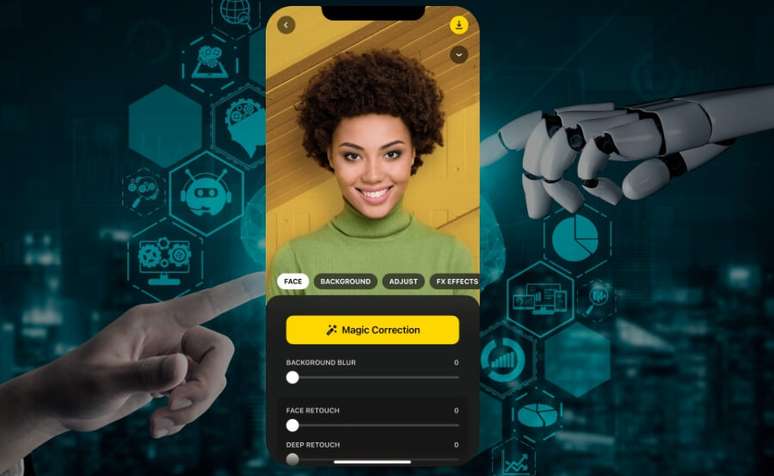The indiscriminate exploitation of personal data carried out by some technology companies is no longer new.
In times of ChatGPT, anyone who does not enter the world of Artificial Intelligence risks being left behind. The platform created by the company OpenAI that chats, writes poems, recipes and even creates computer programs, has become the fastest growing application in history reaching 100 million active users in January 2023, just two months after its launch. No wonder, it has already earned a reputation as the most recent revolution that has masterfully unlocked the power of artificial intelligence.
Even before the GPT boom, it was not uncommon to track viral movements involving AI applications on social media around the world. More recently, the Lensa app for generating virtual avatars using photos has made waves among both anonymous and famous people. FaceApp was also popular a few years ago with the old age, gender change, young/child filter. Either way, the next trend to hit is definitely around the corner.
Therefore it is always good to remember that not everything will be positive. After all, the bonus and the burden normally go together, forming two sides of the same coin. What does it mean? That the full potential of AI is already giving us a lot to talk about and do, for better or worse.
Two sides of the coin
Technology surprises, especially for the impact of the optimization of time, tasks and needs in different sectors, on businesses and people’s routines, but it also scares.
The same Lensa app, for example, of magical avatars, used a term of use that said: “You grant us a perpetual, irrevocable, non-exclusive, royalty-free, worldwide, fully-paid, transferable and sublicensable license to use, reproduce, modify, adapt, translate, create derivative works and transfer the content to the user”.
So many verbs and concessions in the same sentence have generated intense warnings from cybersecurity, privacy and data protection experts.
Thus, once again, the danger of giving consent without reading it and, often, paying for it anyway has returned to the scene.
Curiosity and enthusiasm for new technologies and social media trends motivate users to ride the wave. However, the lack of attention given to the personal data involved in the process should be much more concerning.
Use of the image
By using an AI application and accepting its terms of use and privacy policy (without reading it), the person authorizes the company that manages the application to have the right to use their image indefinitely and, worse, without need for compensation or notification.
Have you ever pictured your face in various Internet or print campaigns without prior permission, payment or compensation?
Deepfakes
Providing photos to AI apps without actually reading everything in-game could amount to providing material to be used to train an algorithm to generate a deepfake.
That is, creating fake but realistic videos of people doing things they have never done in real life. The technique has already generated content from celebrities to fictional speeches from influential politicians.
Biometric fraud
Another alarming aspect like the others is the potential access that a detailed image with artificial intelligence can grant to those who possess it. The image of well-positioned faces can generate biometric data.
Nowadays this technology is widely used to provide access to banks, smartphones, ATMs, homes and workplaces.
The fact is that, given all the benefits that AI can offer, the interaction between user and technology still raises doubts in the collective imagination. In any case, those who have not heard the expression: “Data is the new oil”, or “Data is the new oil”, in Portuguese, should pay attention.
Nowadays, the indiscriminate exploitation of personal data carried out by some technology companies is no longer new. Therefore, it is essential that users are informed about the risks and benefits of AI applications, so that they can use them knowledgeably and safely. After all, personal data is increasingly valuable and it is necessary to protect it responsibly.
Letícia Bufarah is Marketing Manager at Leapfone.
Source: Terra
Rose James is a Gossipify movie and series reviewer known for her in-depth analysis and unique perspective on the latest releases. With a background in film studies, she provides engaging and informative reviews, and keeps readers up to date with industry trends and emerging talents.


![Tomorrow we belong to: What awaits you in the 2054 episode of Thursday on October 16, 2025 [SPOILERS] Tomorrow we belong to: What awaits you in the 2054 episode of Thursday on October 16, 2025 [SPOILERS]](https://fr.web.img6.acsta.net/img/3f/3b/3f3b56983d580fbe5136143378b45a29.jpg)




